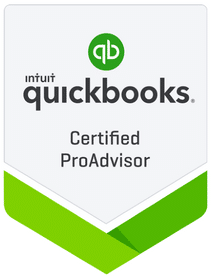- Patrick Roney
- (877) 503-8607
Follow Us :
Follow Us :
Proledge
June 13, 2010

Many of the clients who engage our firm for bookkeeping services ask us if we could run payroll for them as well. The answer is an unmitigated “NO!”. We absolutely encourage small businesses to outsource payroll, but to a dedicated payroll service provider, not to a bookkeeper or bookkeeping firm. When it comes to payroll, your bookkeeper’s role should just be to ensure that all the payroll information is properly recorded in QuickBooks and that the integration between the payroll provider and QuickBooks is tight and efficient.
Once upon a time, it was quite common for CPAs and bookkeepers to run payroll for their clients, but over the last few years, CPAs have started backing out in drove from payroll. Bookkeepers are following the trend, but not as fast because most independent bookkeepers are not getting the proper training and information to understand the risks that they are getting their clients and themselves into.
In order to maintain their certification, CPAs have to go to through CPE (Continuing Professional Education) and they are now being bombarded with warnings about the liability of running payroll for their clients. They are getting the message loud and clear. Bookkeepers on the other hand, don’t have these CPE requirements, and as a result, the information is trickling down to the bookkeeping profession at a much slower pace.
There are many reasons small businesses should outsource payroll and this is beyond the scope of this blog, but a few of these reasons also explain why your bookkeeper should not be the one doing payroll.
In other words, if your bookkeeper offers you to manage your payroll, it’s a red flag.


Fill out the form below to sign up to our Blog Newsletter and we’ll drop you a line when new articles come up.
Bookkeepers.
Professional. Affordable.
ProLedge is a bookkeeping services firm.
Copyright © 2024 All rights reserved.
Hello. Can we help you?